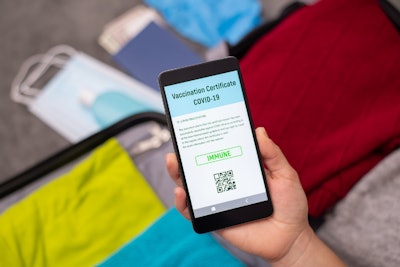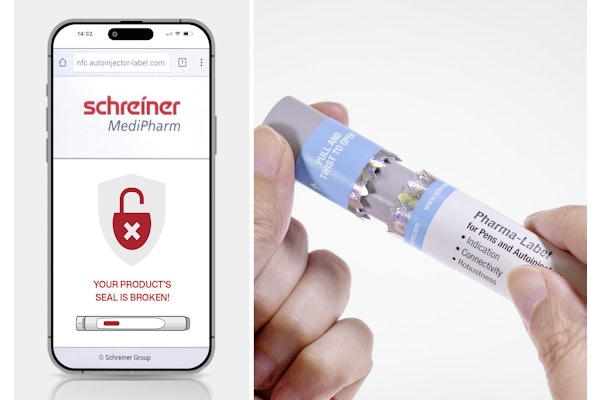
This content was written and submitted by the supplier. It has only been modified to comply with this publication’s space and style.
Greece, Israel, the UK, the International Air Transport Association, the USA – these are among the countries and organizations that have either announced that they are introducing a COVID-19 immunity passport or are examining the possibility of doing so. At the same time, many security printers or health management organizations have also announced that they have already developed or are developing such a passport – under names including VeriFLY, TravelPass, CommonPass, MatriX-iPass and more.
It is inevitable that some form of passport or certificate to show that the bearer has had a COVID vaccination will soon be introduced. But what will this passport be like? Will it be a physical document – a true passport lookalike? Or will it be digital or virtual? In any case, how secure will it be and how well will it protect the personal data of the holder?
These passports or certificates may be rushed through, because of the urgency. But this mustn’t be allowed to compromise the need for security, data protection, privacy and the requirement for international standardization of health status documentation. Speed comes with the critical danger that they will be easy to copy or fraudulently emulated, or that there will be inadequate protection for the personally identifiable information of the holder.
To help ensure that these important new passports don’t fall into this trap, Reconnaissance International, document security specialist and publisher of ID & Secure Document News, is launching two initiatives to examine the implications and options for their security:
At the Digital Document Security Conference Online on March 30 a specialist panel has been added to the program, titled Vaccination certificates and immunity passports: ensuring their security. This panel will comprise an international group of experts from security printers and digital systems designers, specifiers and security document issuers who will offer practical insights into the opportunities and pitfalls that lie ahead during the roll out of health status documentation.
In parallel, Reconnaissance will publish a short-and-to-the-point White Paper examining the issues around vaccination certificates and immunity passports. This White Paper will set out the options for the nature of these items, the information they will carry, how they are tied to the bearer, how they are secured and examined, and the types of attack they will attract.
Reconnaissance will then synthesize the information from the panel and the White Paper to produce an Industry Roadmap, setting out the pathway from the immediate need to protect paper-based medical certificates to the time when immunity passports will inevitably be issued.
To register for the Digital Document Security Online conference and participate in the panel discussion click here.





















